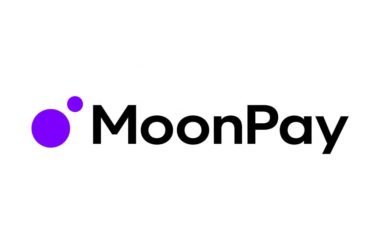Quick take:
- Web3 talents such as marketers, community managers, and engineers are in abundance.
- Web3 is male-dominated, as is the broader tech industry.
- The rapidly changing Web3 landscape creates a knowledge gap that needs to be filled.
It’s no secret that some blockchain and NFT companies have gone on a hiring freeze and laid off staff amid crypto winter, but a search for Web3-related jobs on LinkedIn still returns hundreds of results across various functions and experience levels.
Last week, NFTgators found that non-Web3 businesses are actively recruiting for Web3 roles as they enter the emerging market. These include Ticketmaster/Live Nation, which are looking to capture the NFT ticketing market share; the National Hockey League (NHL), which recently partnered with Sweet for licensed NFTs; Nike, Hugo Boss, and Samsung UK have created Web3 roles as they position their brands in the Web3 space.
The largest number of open positions came from blockchain.com, which had over 100 job roles open including CX content writer, corporate communications lead, NFT partnerships lead, brand marketing manager, software engineers, trade analysts and many more.
According to the 2022 Global Blockchain Talent Report – Web3 Direction jointly published by crypto exchange OKX and LinkedIn, the total number of LinkedIn users claiming blockchain skills had increased by 76% year-on-year as of June. However, the report also found that qualified candidates are in short supply.
While businesses are actively recruiting Web3 talents, just how easy is it for them to find the right fit? NFTgators spoke to nine C-level execs, half of which said that they have faced challenges finding the right hire in the space, which is considerably new.
Difficulties in hiring for Web3
Rahul Sood and David Raskino, the co-founders of Irreverent Labs, said that their challenge was in hiring world-class specialists across many fields who all need to work within a broader blockchain framework.
Fabrice Cheng, CEO, CTO, and co-founder of Quadrata – a data passport network which intersects traditional and blockchain technology, finance, compliance, and legal fields – told NFTgators that finding a qualified candidate with experience and knowledge across so many fields is challenging. This was echoed by Joel Dietz, CEO of Metametaverse, who said that despite the increase of Web3 jobs, there are fewer people who have rich and deep experience across multiple verticals as “there are lots of people who split their time across many projects,” making it difficult to find committed hires.
Naquib Mohammed, founder/CEO of MRHB DeFi Network, told NFTgators that in his experience, hiring is the most difficult part of running a Web3 company as it is rare that there are people who understand the niche space well enough to build in it, and that “no one is really sure of how things might work out.”
While the increased interest in the industry is coupled with uncertainty from recent market conditions, Koinly’s Head of Growth, Will McCabe said that the responsibility to reassure the candidates falls on the company. “You need to demonstrate the strength of your vision and the great team they will be joining from the beginning of the recruitment process. This has played a large role in giving our candidates the confidence to continue their journey in Web3,” he added.
Roles that are in supply versus demand
Understandably, engineers and developers are in abundance, but Shaheen Sayed-Kadri, Chief People Officer at EAK Digital, a web3 PR and marketing agency, said that there can’t be an entire team of developers and engineers without a support function, therefore, those who are in the support functions like HR, marketing, and finance who have experience in Web3 are slowly seeing an increase in demand.
“Focus needs to be on core talent the kind that will accelerate this space, with new and innovative ideas and products (R&D) – with technology at the centre, the challenge is that those who are considered core talent are still learning, exploring and understanding this rather complex web3 landscape,” he continued.
Similar to Shaheen Kadri’s observation, OKX and LinkedIn’s global blockchain talent report found that the demand for core talent has shifted from financial-oriented to candidates with technical skills, with R&D specialists topping the global demand, followed by information technology.
Tricia Dougan, CMO at Infinity Skies, opined that the industry needs more talent that is well versed in business development and scaling as many startups are growing quickly and need the right project managers and talent that can bring the necessary structure. Cheng had a similar opinion, saying that many of the leaders and employees throughout the Web3 space come from a computer science or general technology background. They often don’t have experience in running or operating a business, which is necessary especially in today’s market to show “which products have well-thought-out value propositions and which are surviving on hope.”
Besides engineers and developers, social media and community managers are frequently encountered by recruiters in the space, as these growth strategies have played a big role in the industry’s growth, according to McCabe. Tim Haldorsson, CEO of Lunar Strategy, an NFT marketing agency, said that there is a demand for marketers that understand the new shift towards community-first marketing due to the ever-changing nature of the crypto-sphere.
Increased vacancies and an unfilled knowledge gap
Additionally, the rapidly changing Web3 landscape creates a knowledge gap that needs to be filled. According to Haldorsson, there is an increase in talents thanks to new education courses and companies growing their in-house team, but the talents’ knowledge growth is slower than what is needed from companies, creating a large gap between the two. Furthermore, Dan Nissanoff, CEO of Game of Silks, said that the rapid changes in the Web3 landscape make the skills learnt in the past year obsolete.
All the industry execs that NFTgators spoke to have seen an increase in the number of Web3 talent along with more vacancies in the space. “I have seen high-paying engineers quit their stable jobs to create their own Web3 startups. This in turn becomes a cradle for employment of at least 50 new people,” said Naquib Mohammed.
Dougan said that there are many projects looking to hire but the issue is usually that they want talent experienced in the space which can be difficult to find. Companies such as Quadrata, EAK, Infinity Skies, MHRB DeFi Network, and Lunar Strategy have all hired talents with an average professional experience time of 0 – 6 years spent in their specific fields. Acknowledging the nascency of the Web3 space, Cheng said that Quadrata doesn’t require a professional background in Web3, but it is certainly a plus.
What could be done to possibly attract more women into the space?
It was unanimous amongst all the abovementioned executives that the Web3 industry is male-dominated, as is the broader tech industry.
“Nearly all the blue chip companies (BAYC, RTFKT, Punks, Cool Cats, Invisible Friends, Creatures, and Doodles) are run by men. There are exceptions, such as World of Women, but they are rare. Excellent women-led collections still get far less than their male counterparts,” said Fooms Iwasaki, Product Manager at Irreverent Labs.
However, Heather Russell, the DAOmaster at Irreverent Labs, said that the difference between Web3 and its Web2 counterparts is that the former has more attractive ideals.
“One such ideal is the decentralization of authority, which naturally has more of a flat organization vs (historically male-dominated) hierarchical one, leading to more equality in the space. Another ideal is the conversation about earning a living and how that has changed and will change even further in the future,” Russell explained.
To invite more women into the space, Iwasaki thinks that “Web3 should begin with becoming an industry which welcomes women with equal vigor as it welcomes men,” meaning equal opportunities for success, independence, employment, training and representation. She also said that the ecosystem – from investors to creators – needs to make a concerted effort in separating Web3 from the traditional tech culture that preceded it.
“The message to women has always been to “study engineering,” but we’re seeing that engineering is realizing they need much more than just engineering in this space. Engineering orgs are struggling to find their necessary counterparts in order to fully realize the power of Web3,” Russell added. “We need to focus on creating well-compensated, serious, respected job models for the roles that web3 needs in order to manifest the ideals Web3 preaches and attract more female, female-identified talent into the space.”
According to Cheng, another key focus to drive more diversity in the Web3 field is through social events. Shaheen Kadri agrees, saying that it would help to “have more women as speakers at events so that they feel supported and feel part of this ecosystem.”
Stay up to date:





